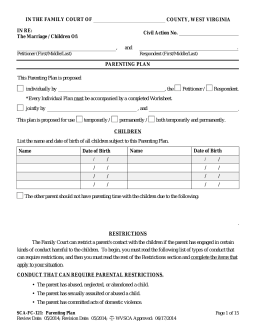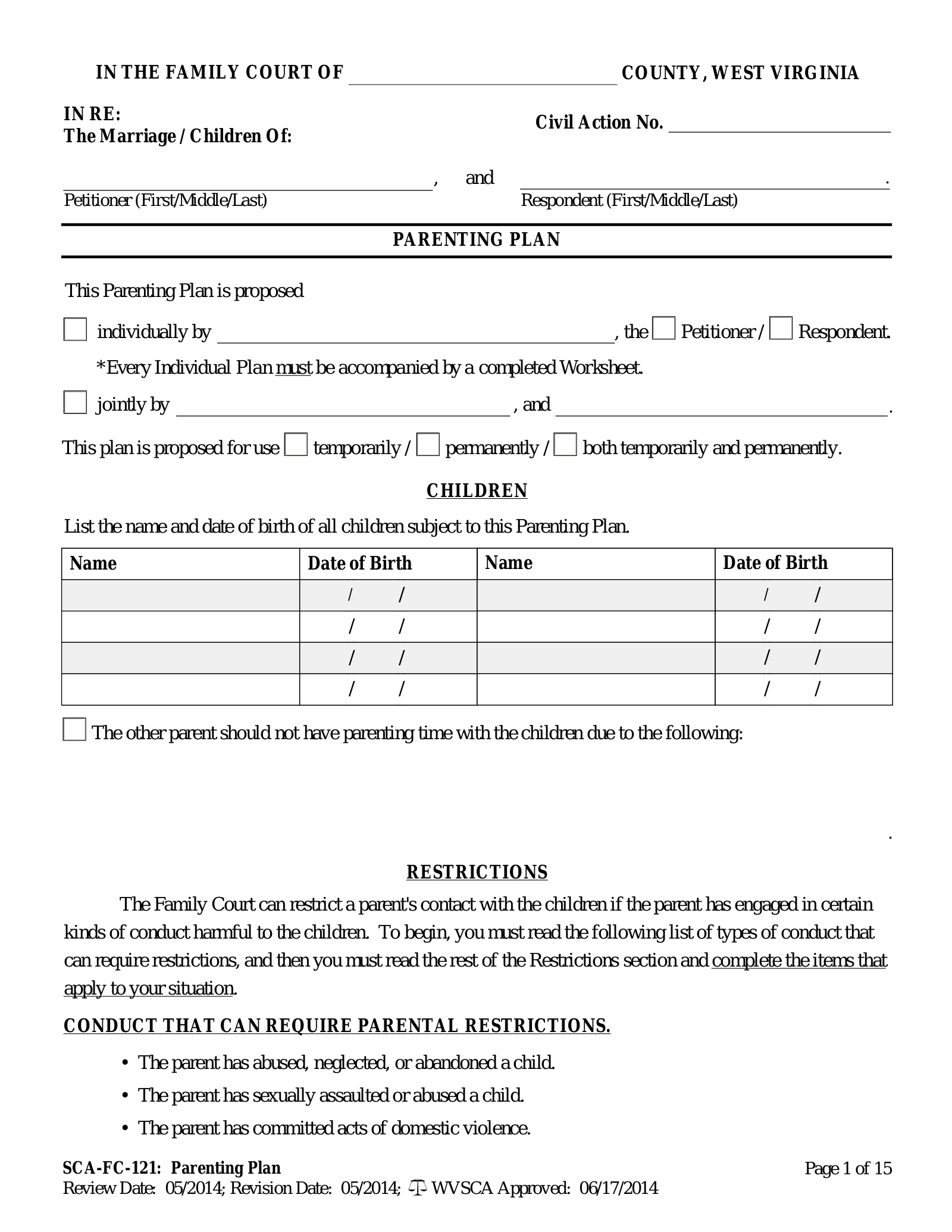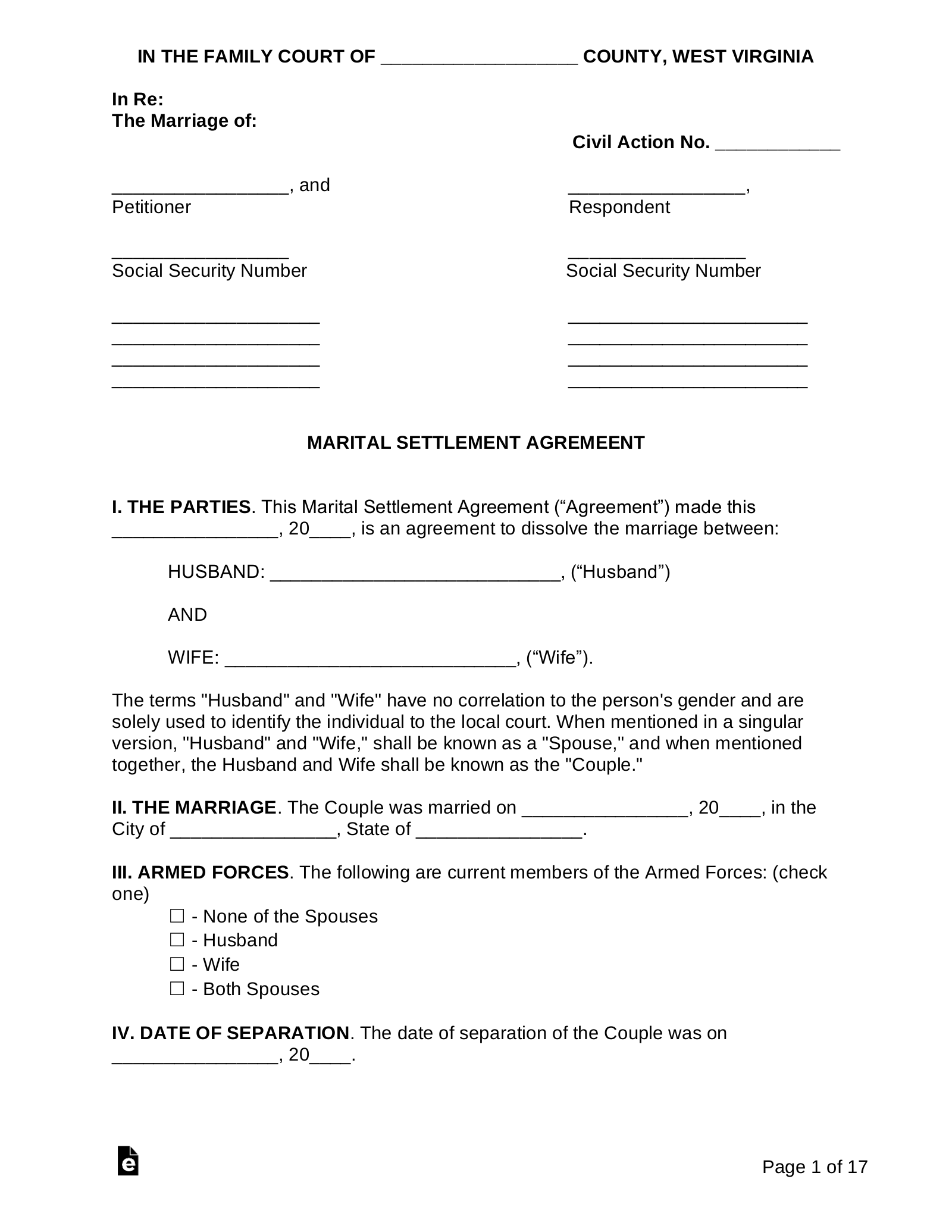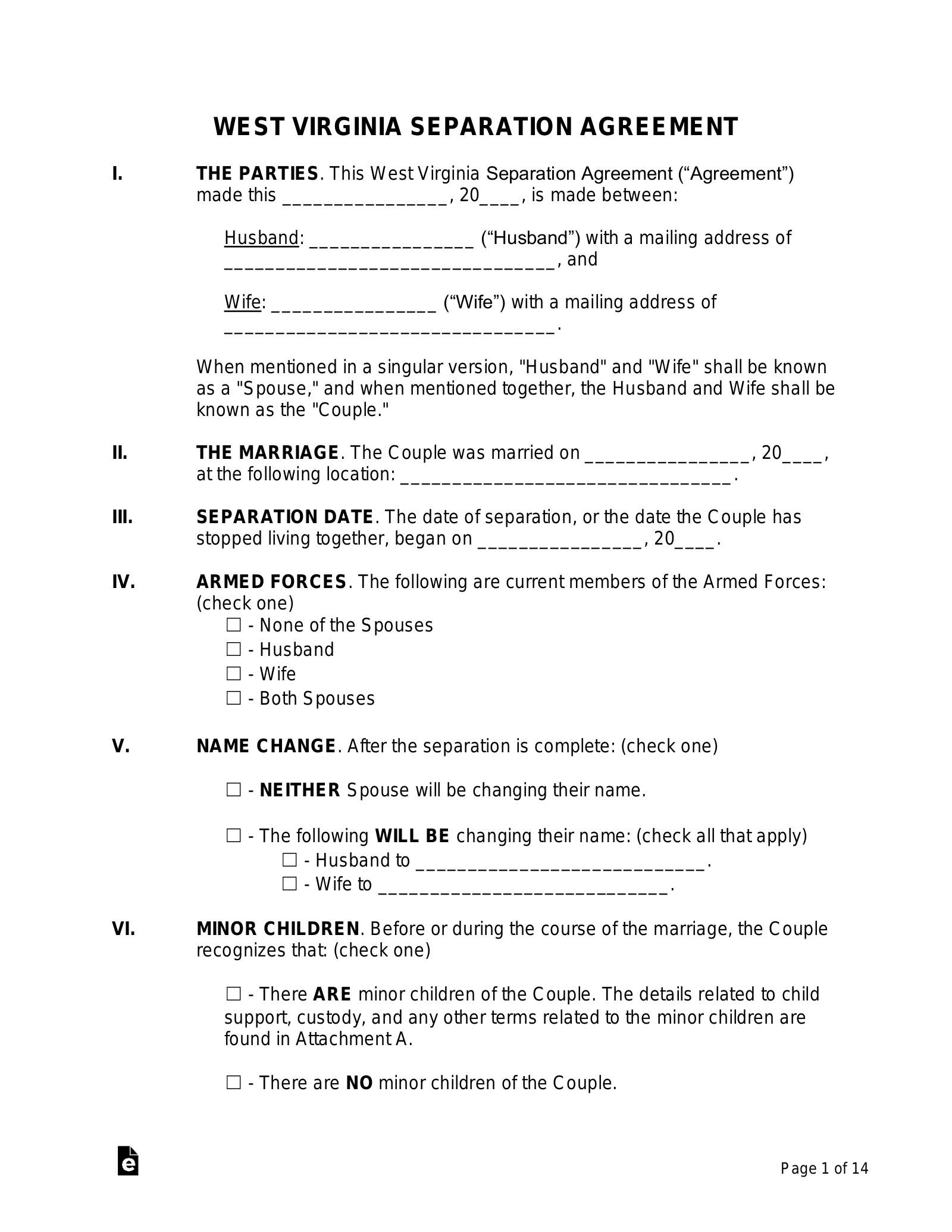Updated February 08, 2024
A West Virginia custody agreement allocates custody and decision-making authority for a minor child whose parents no longer live together. The procedure is a part of the state’s more extensive divorce/separation process. Biological parents, adults with authority under an existing parenting plan, and adults with past rights under a prior parenting plan may file for custody of a minor child.
Child Custody Factors
West Virginia courts prioritize the child’s best interest when determining custody and consider the following conditions:
- Either parent falsely accused the other of child abuse or domestic violence;
- Either parent has a history of abandoning, abusing, neglecting, or sexually abusing the child;
- Either parent has a history of committing domestic violence;
- Either parent has a history of impeding the custodial rights of the other parent;
- The child’s potential exposure to emotional or physical harm in each parent’s home;
- The child’s relationship with each parent;
- The child’s relationships and contact with siblings;
- The child’s relationships with secondary caretakers;
- The child’s stability;
- The parents’ ability to collaborate on a parenting plan and custodial arrangements; and
- The parents’ ability to expeditiously make decisions for the child.
Table of Contents |
How to File for Custody in West Virginia
1. Agree on a Parenting Plan
West Virginia requires all cases involving a minor child to submit a parenting plan to the court. If the parents are able to agree on the custody terms and submit a joint parenting plan, it is likely to be accepted by the court unless it is deemed harmful to the child.
If, however, the parents are unable to reach an agreement, the process becomes more complicated as they must each submit an individual parenting plan for the court to determine what serves the best interest of the child.
2. Calculate Child Support
Under the state’s statutory guidelines, child support obligations are determined by both parents’ adjusted gross income, the number of eligible children, time spent with each parent, and other relevant factors. Use the Shared Parenting Worksheet to estimate the amount of child support that may be ordered by the court.
3. File Required Documents
Once completed, the parenting plan should be filed at the circuit clerk’s office in the county where the child resides.
If a parent is filing an individual parenting plan, they must also submit the following:
The filer should request a temporary order on parenting. If approved by the court, a temporary order can become a permanent parenting plan.
4. Serve the Other Parent
If an individual parenting plan was filed, the filer must serve copies of the motion, plan, and worksheet to the other parent.
5. Attend Hearing
The court will determine whether the proposed parenting plan(s) is in the best interest of the child and confirm other important details. At the conclusion of the hearing, the court may accept the plan or make modifications as necessary.
If the parents are still unable to agree on a plan, the court may refer the parents to a mediator or schedule subsequent hearings to determine an outcome that best serves the child.
Custody Laws
- Access to a child’s records: § 48-9-601
- Child’s best interests: § 48-9-102
- Emergency custody: § 48-20-204
- Grandparent visitation: §§ 48-10-101 through 48-10-1201
- Mediation: § 48-9-202
- Parent education classes: § 48-9-104
- Parenting agreements: § 48-9-201, § 48-9-209
- Presumption in favor of equal (50-50) custodial allocation: § 48-9-102A
- Relocation of a parent: § 48-9-403
- Child abuse: § 48-9-201(b), § 48-9-205(b), § 48-9-301A
- Child conceived as result of sexual assault or sexual abuse by a parent: § 48-9-209A
- Uniform Child Custody Act: Chapter 48, Article 20
Related Forms




